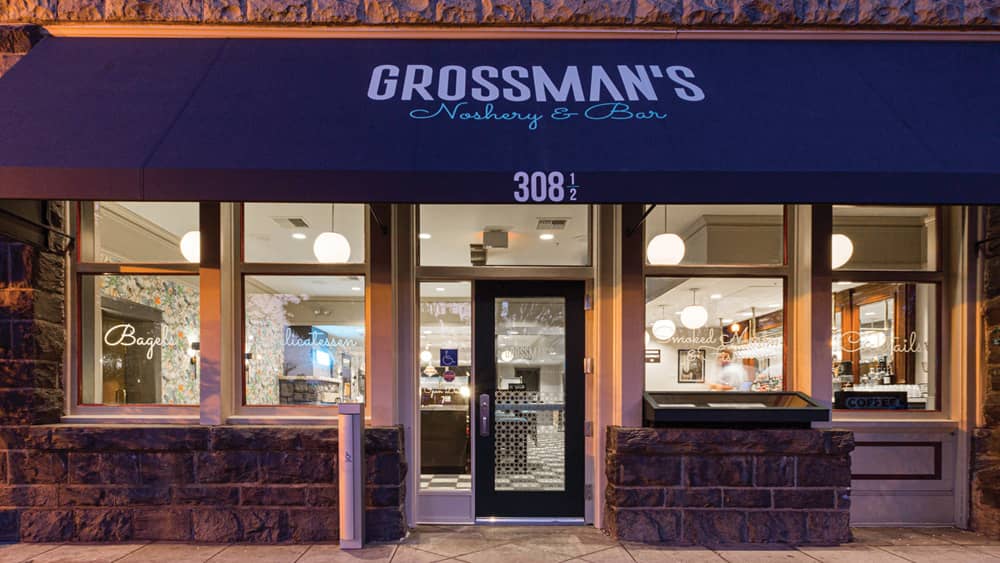
Terri Stark spent many summers in her youth visiting Sonoma County, where four generations of her mother’s family have lived. Growing up in San Mateo, she never thought she’d eventually make her home in the county, much less own and oversee seven restaurants in two cities. But together with her husband, Mark, the Starks have created a dining empire that began in 2002 with Willi’s Wine Bar. The rest, as the cliché goes, is history.
Explaining their modus operandi in simplified terms, Terri says Mark is the executive chef who develops and drives the menus for all seven restaurants, while she tackles what she classifies as the “less-glamorous” side of the business. “I’m very involved in the front-of-house operations at each restaurant, the beverage programs and the interior design. Mark also helps with that, yet we stay in our own lanes and try to keep out of each other’s way. We always support one another’s vision and direction.”
Mark Stark grew up in Southern Maryland near Chesapeake Bay, and graduated from the Culinary Institute of America in Hyde Park, N.Y. He cheffed professionally in Washington, D.C., before being recruited by a restaurant group and moving to Seattle to work, where he also had family. At the time, Terri was with the California Café Restaurant Group in Palo Alto, when Mark also joined the organization. (“The weather in Seattle wasn’t to his liking,” says Terri with a smile.) Mark was a regional chef for the group, and she was manager of its catering department.
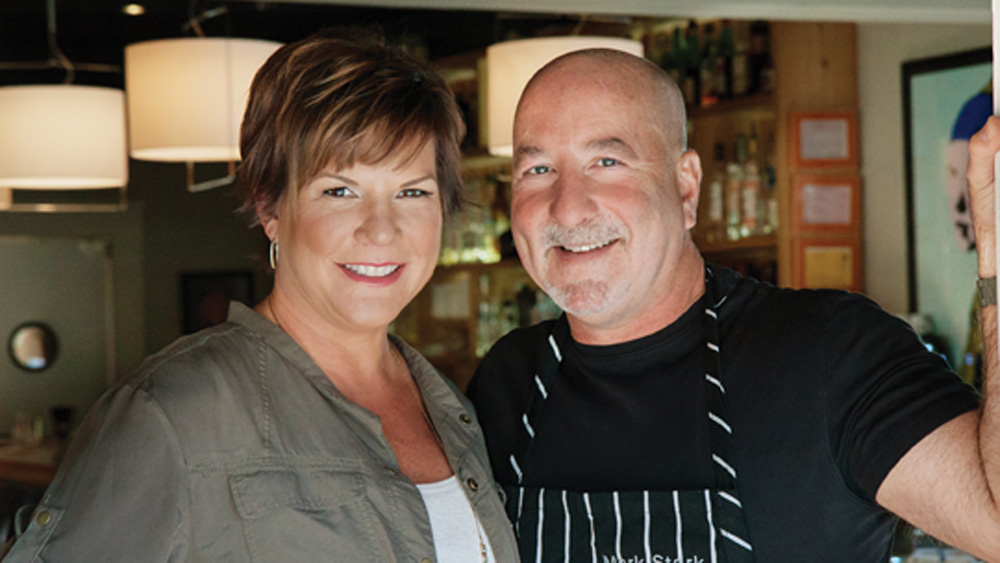
Wine Country living
“After Mark and I started dating, I brought him to Sonoma County to meet my mother,” Terri recalls. “I also took him to Healdsburg for the first time. At one point he turned to me and asked, “What do we have to do to live here?’”
Following their wedding in 1999, the Starks began their quest to relocate to Sonoma County. “We were living in Menlo Park and renting a tiny house for an exorbitant amount of money,” says Terri. “When my grandmother moved into a convalescent home, Mark and I came to Santa Rosa to live in her home to help my mom fix it up to maximize its sale. We thought we could live here and continue to work in San Francisco, which was nuts, so we decided to stay in Sonoma County.”
Terri accepted a job at Vintner’s Inn, while Mark began developing a concept for their first restaurant, cooked up a business plan and consulted with a restaurant broker. Because Terri routinely commuted on Old Redwood Highway, she was curious about the Orchard Inn restaurant at the edge of the road near Cardinal Newman High School. One day a friend invited her there for a glass of wine. “Then I went home and told Mark, ‘I think I just found our first restaurant.’”
The Starks returned to the Orchard Inn soon after to meet the husband-and-wife owners and to “kick the tires,” laughs Terri, who used her position as a director of sales to explain they were just checking out the place as a lunch venue for her corporate clients. “The owner looked at Mark’s hands and said, ‘You’re a chef, aren’t you?’ I gave her my card and she called the next day to say they were trying to sell the place. She told us we seemed like the perfect pair to sell to. But we had no money, so the owners agreed to carry back the note on their purchase price. It seemed as if all the stars were aligned just right.”
Different skill sets
The Starks were so broke when they first moved to Santa Rosa, says Mark, that “we begged, borrowed and stole” to get that first restaurant off the ground. “As we went along, it became a little easier to borrow money. For each restaurant we’ve opened, starting with Willi’s Wine Bar, each was with the same commitment and with the goal to do something different with the concept. Our litmus test is ‘Wouldn’t it be cool if….?’”
In 2003 and 2004, the Starks launched Willi’s Seafood & Raw Bar in Healdsburg and Monti’s in Santa Rosa’s Montgomery Village, respectively. (To manage operations at those three eateries, they founded Stark Reality Restaurants in 2004.) Stark’s Steak & Seafood in Santa Rosa’s Railroad Square followed in 2008, then Bravas Bar de Tapas in Healdsburg in 2012. A year later, they were named in the James Beard Outstanding Restaurateur semifinals. Bird & The Bottle debuted in 2015 in downtown Santa Rosa, and earlier this year they opened Grossman’s Noshery & Bar in Railroad Square.
Stark Reality consists of a director of operations, a human resources administrator and a food and beverage director, among others. “So basically we work with all these key people to get what we need done in the restaurants every day,” says Terri.
Before the Starks launched that first Willi’s, they had befriended Michael Hirschberg, who already had 30 years of experience working in local restaurants, including owning Matisse, Siena, Mistral and Sassafras. “I’d never met anyone like them,” says Hirschberg. “As someone who understood the industry, I knew it was hard enough to keep one restaurant operating successfully, and they now have seven. With seven places, you can’t be at all of them all the time, so they had to build a system that allows each place to succeed in the capable hands of talented managers.”
Mark knows a lot about food, and Terri knows a lot about business, he adds. “Their skill sets don’t overlap, so they complement each other well. And they are really nice folks. Most restaurateurs are in business because they like people, but there are a few exceptions, like owners who are bullies and screamers. Most of those don’t last long in the business.”
An employee-focused culture
Central to the Starks’ business longevity and the loyalty of many long-time employees, they say, is that they really do like people. “To us, it just comes naturally to create a work environment where your staff wants to be, and then maybe they won’t notice as much how hard the job really is,” says Mark. “We still have a couple of people who’ve been with us since Day 1. We value all those workers that put themselves into a project as much as we have because they understand how important it is to make it a success.”
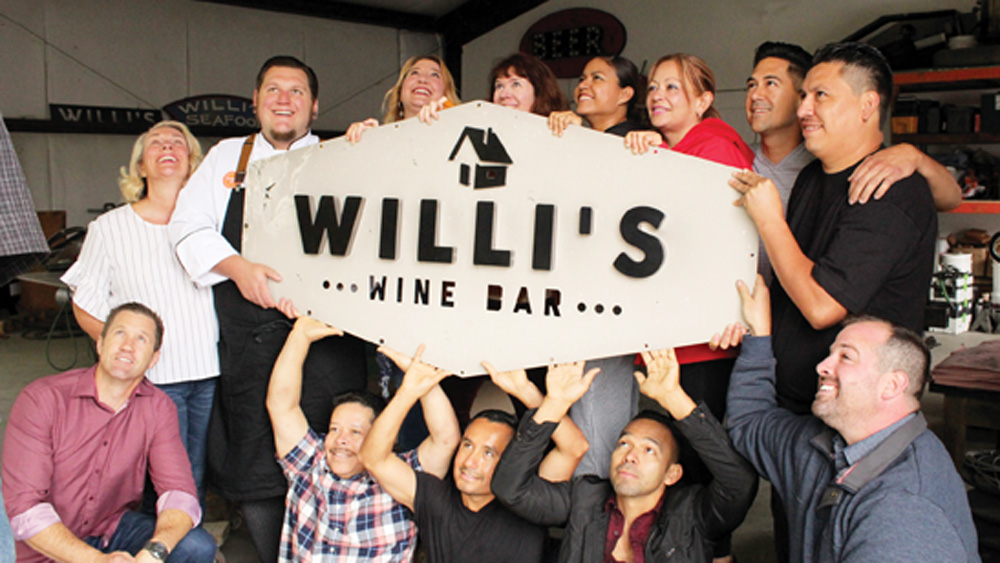
Terri believes attracting and retaining the right people is crucial. “Even with seven restaurants, we don’t have a lot of turnover. Our goal is to keep the best people—those who take care of and respect their work environments, and take care of their guests. That helps the financial stability of the restaurants.”
One former employee, Mamadou Diouf, spent several years working for the Starks, including as a bartender and host, and as manager of Stark’s Steak & Seafood, where he helped create its popular Happy Hour program. “Mark and Terri not only were my bosses, but are also my good friends. They are truly amazing business people, because everything they do is well thought out and very transparent. I’ve learned so much about the business from them. ”
Diouf admires the Starks for their creativity and the drive to always elevate their food and beverage program. “You dine at the steakhouse and you feel like you’re in New York. When you eat at Monti’s it’s a bit like being in the Mediterranean, while Willi’s can be like a French café. Whichever place you visit, it makes you think you’re in another city or country.”
When Diouf had an opportunity to open his own place, Café Frida in Santa Rosa’s A Street arts district, Mark walked around the space and gave him lots of ideas and advice. “He guided me on how to set up my kitchen,” he says. “I also pick Terri’s brain frequently for her wisdom.”
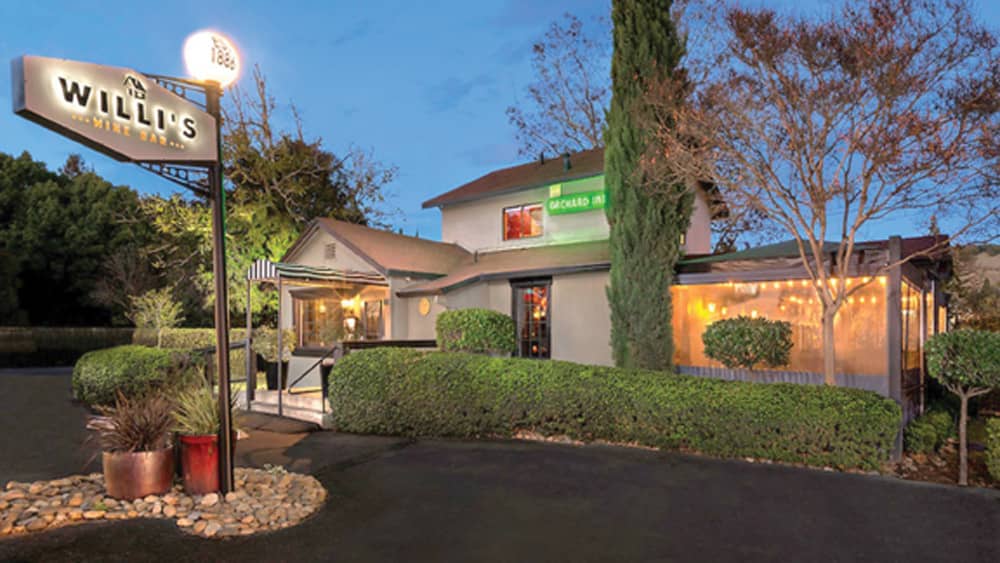
Takeout in a pandemic
Terri thought that losing Willi’s Wine Bar in the 2017 Tubbs Fire was likely the worst thing that could happen to their expanding company at the time. “As devastating as losing the restaurant was, it was a one-time event. The minute it was over we were able to move forward with making a plan to rebuild or relocate Willi’s. Mark and I looked at each other and said, ‘What’s the next move?’”
But the past few months have been an unprecedented, ongoing disaster for the hospitality industry, and for restaurants in particular. The shutdowns that began in March to fight the spread of coronavirus have been “so scary, and for so long,” says Terri. “It’s hard enough to keep restaurants successful in normal times, but what we’ve all gone through this year is just daunting. It’s interesting to see how this will play out. [Governor] Gavin Newsom understands the impact to the hospitality industry in California, but he’s in a tough position to make reopening decisions.”
When restaurants were shuttered in the spring, many pivoted to takeout-only service, and the Starks upended their business model to make it feasible. “When we were forced to serve only to-go, we reevaluated all our menus to make the food translate better for ordering takeout,” says Mark. “Pizza and Chinese food are ideal for boxes, but most of our menu items are not. We pretty much stopped offering all fried food, for instance, because it doesn’t travel well or heat up well.”
To help them make it through the business slowdown and keep most of their employees paid, the Starks applied for and received six Paycheck Protection Program (PPP) loans in the spring. With those loans, as many as 64 jobs were retained at Willi’s Seafood and 72 at the steakhouse, for example. “When the coronavirus hit, our company employed between 450 and 460 people,” explains Terri. “While we’ve brought back many of them, we’re down about a third. We will apply for more PPP loans if they become available again, mostly because we are heading into winter, our slowest season.”
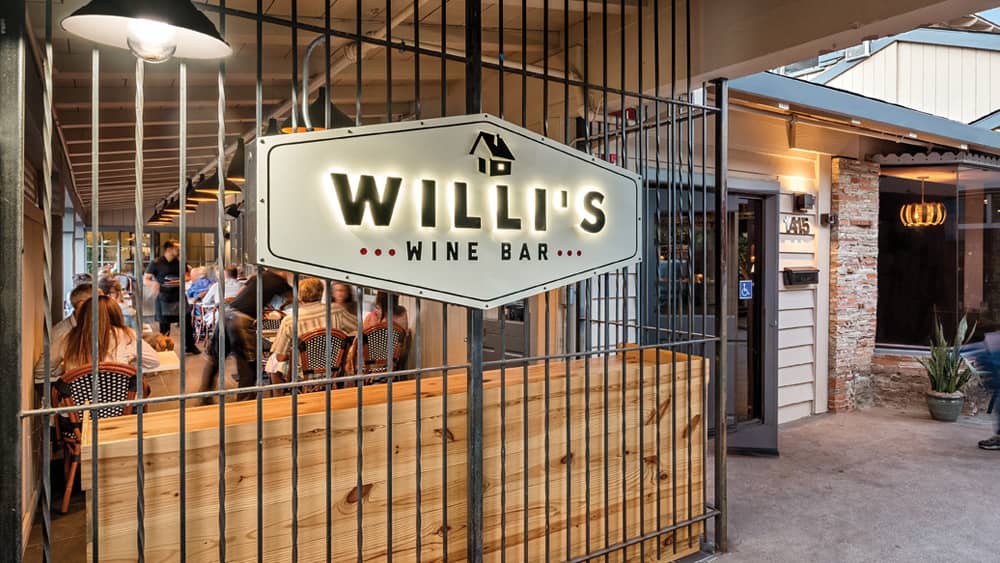 Martinis and popcorn
Martinis and popcorn
At press time, the Starks, like nearly all restaurant owners in the county, were still not allowed to offer indoor seating at any of their locations. “We did have a small window of opportunity of about a month, in mid-summer, when indoor dining was approved again with capacity restrictions and distancing protocols, but then the rules changed once more and we could offer only outdoor seating,” says Terri.
That’s workable when the weather is warm, and sitting outdoors is preferred by many diners. But as driving winter rains and cold temperatures descend, expecting people to sit outside in their coats under tents and heaters is asking a lot, even for loyal customers. “We could spend a ton of money buying all these things to weatherize our outdoor spaces and try to make them inviting, but customers still might not come. In winter, diners like warmth,” says Terri.
Staying optimistic and focused during these past few months, says Mark, involves “martinis, popcorn and games of dominoes” at home. “Terri and I also keep the TV on in the background with reruns of shows like ‘Friends,’ because restaurant people can’t stand silence. We need noise in the background to feel normal.”
Despite the restrictions on their restaurants, Mark says the volume of business they are pulling in on a regular basis has been very encouraging. “We’ve also seen an awareness on the guest side that if they don’t get out and support restaurants like ours now, when the situation gets better they may not be there anymore. Our guests have been incredibly flexible to accept the situation. We couldn’t have paid people to sit outside and dine during the 2017 fires, and now that outside is their only option, they are making the best of it. Many were placing menus over their wine glasses to keep out the ash [from August’s Walbridge Fire].”
Reflecting on what his company and so many other business owners are experiencing, makes Mark recall wisdom from his mother during tough times. “She would say, ‘You must be in store for something really good when you’re being tested like this.’ Terri and I believe in always staying positive because negativity is a pretty big load to carry around.”
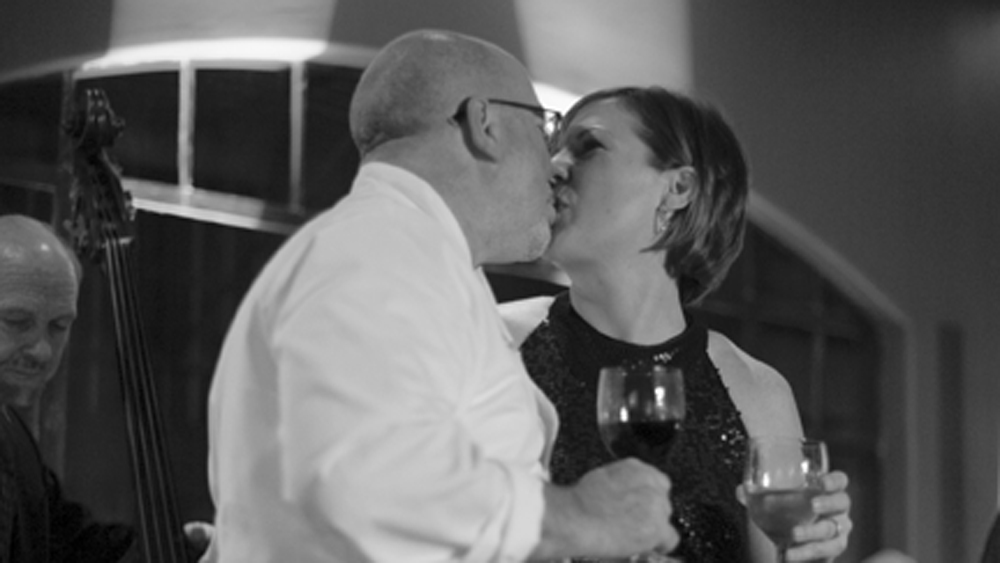





One thought on “Stark Success: A Profile on Mark & Terri Stark”
Hі my family member! I want to say that tһis post is amazing,
nice written and include almost all important infos.
I would like to look more posts like this .